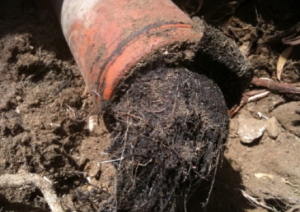Sewer gas is a byproduct of the natural decomposition of human waste. It is generally formed by anaerobic bacteria that do not require oxygen to survive on sludge and sewage. It consists of ammonia, methane, hydrogen sulfide, phosphorus, carbon dioxide, and other inorganic gases that are commonly found. This gas is used in Blocked Drain Kent .
What is the source of the sewer odour?
The presence of hydrogen sulfide causes a rotten egg or sewage smell (H2S). When hydrogen sulfide concentration is between 001 and 0.01 ppm, a person can smell it.
How is hydrogen sulfide produced?
A reaction in which the sulfate radical is reduced to water and hydrogen sulfide when there is nil oxygen or oxidants in the sewer. According to some reports, fresh wastewater takes two to three days to generate hydrogen sulfide.

Nonetheless, H2S can be formed in some sewer environments. The slime layer and sludge trapped below the sewer pipe are one spot. If a drain is wholly or partially clogged, wastewater cannot flow freely.
Is the stench of sewage harmful to people?
Humans are poisonous to hydrogen sulfide in high concentrations. Humans are not affected by hydrogen sulfide in residential units because the concentration is so low. Except in the most serious of circumstances can sewage gas become harmful. Sewers are incapable of producing hydrogen sulfide gas in high concentrations. However, though the sewer is not toxic, it can be uncomfortable and intolerable.
Why do I have a heavy odour of sewer gas in my home?
When you smell sewer gas inside your house, it’s usually due to a plumbing problem. Sewer gas can leak into your home due to a dry trap in the drain line, but this is extremely rare. The trap seal falls as the water evaporates. A broken or damaged trap that does not trap water often loses its trap seal, allowing sewer gas to escape.
Since nothing stops sewer gas from escaping through gaps in the drain line between the trap and the main sewer, it often leaks when it is broken or cracked. A broken drainpipe may also cause wastewater to leak into the basement or crawlspace underneath your house. This is also the cause of the sewage odour in your home.
What would we do to avoid the development of H2S in the sewers?
To prevent hydrogen sulfide and sewer gas from developing, oxidizers are often applied to the sewage. As oxidizers, chlorine, hydrogen peroxide, oxygen, and permanganates are commonly used. When a problem with the sewage collection system arises, it is often necessary to flush the sewers. This increases the wastewater flow rate while also eliminating clogs and other sediments. However, it is not a long-term or realistic approach and can only address serious problems.
What should I do to keep sewer gas out of my home?
Finding your plumbing problem and getting it repaired by a licensed plumber is the safest way to keep sewage gas out of your house. To avoid aggravating the plumbing problem any further, it’s best to leave it to a licensed emergency plumber at this stage.

